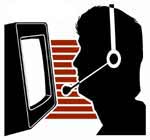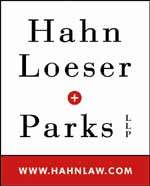Blink: The Power of Thinking Without Thinking Blink, and The Tipping Point, have made author Malcolm Gladwell a common name to business people. Both are very popular books and are quoted routinely at cocktail parties and networking events. Blink starts off with a story about a kouros, a classical sculpture of a male in a certain position. It was being shopped to museums for about $10 million. The museums used their best scientists and were able to determine it was old enough, the marble was from the quarry it should have been from and so on. So after over a year of study, the Getty Museum in California bought the statute and displayed it. Some experts viewed the statue and immediately described it as "fresh" or other terms that questioned its authenticity. Gladwell says that in the first two seconds, the blink of an eye, many experts were able to determine that the statue was a fake. And it turned out to be just that. He goes on to use other stories like the kouros tale to suggest that our brains make rapid and correct decisions in the first second or two. This was necessary to our ancestors as they needed to make the decision to flee or fight in the blink of an eye to survive. Gladwell attributes the ability to decide in a blink to "thin slicing" which relies on our subconscious mind. But he seems to want it both ways. After praising our ability to thin slice and make accurate determinations at first site, he trots out the example of President Warren G. Harding. Supposedly, Harding got elected because he was very good looking. People made a (positive) decision about him in a blink and that carried him into the White House. He then cites the case of the killing of an immigrant in New York by the NYPD who made their (wrong) decision in the seven seconds they had to act. My take from his examples was that thin slicing and intuition are good when the results end up being correct but they are bad when they are wrong. That's not much help, is it?
Gladwell blames the inaccurate thin slicing on personal biases the person might have. But when the biases are "good" as with the art experts, it's OK. When they are "bad" as with President Harding, it's not OK. We are all a sum of our experiences and biases so it just doesn't seem like a consistent theory to me. Given that, it's an interesting book, easy to read and will give you lots of fodder for chatting at cocktail parties.
Great Lakes Geek Rating:3 out of 5 pocket protectors.
Reviewed by Entreprenerd Dan Hanson, the Great Lakes GeekWhat are you reading? Let us know at dan@greatlakesgeek.com
Top of Page
Back to Great Lakes Geek Book Reviews
| 



